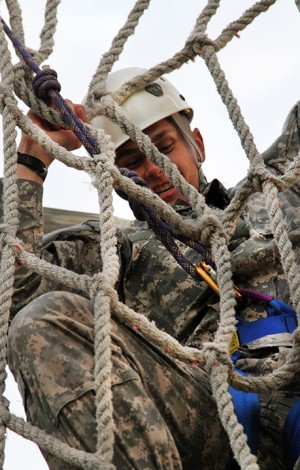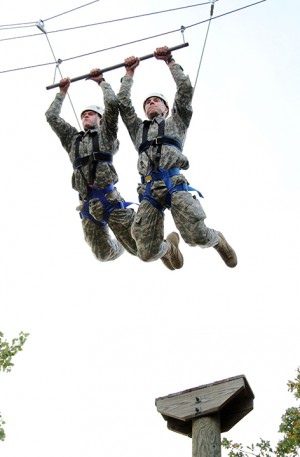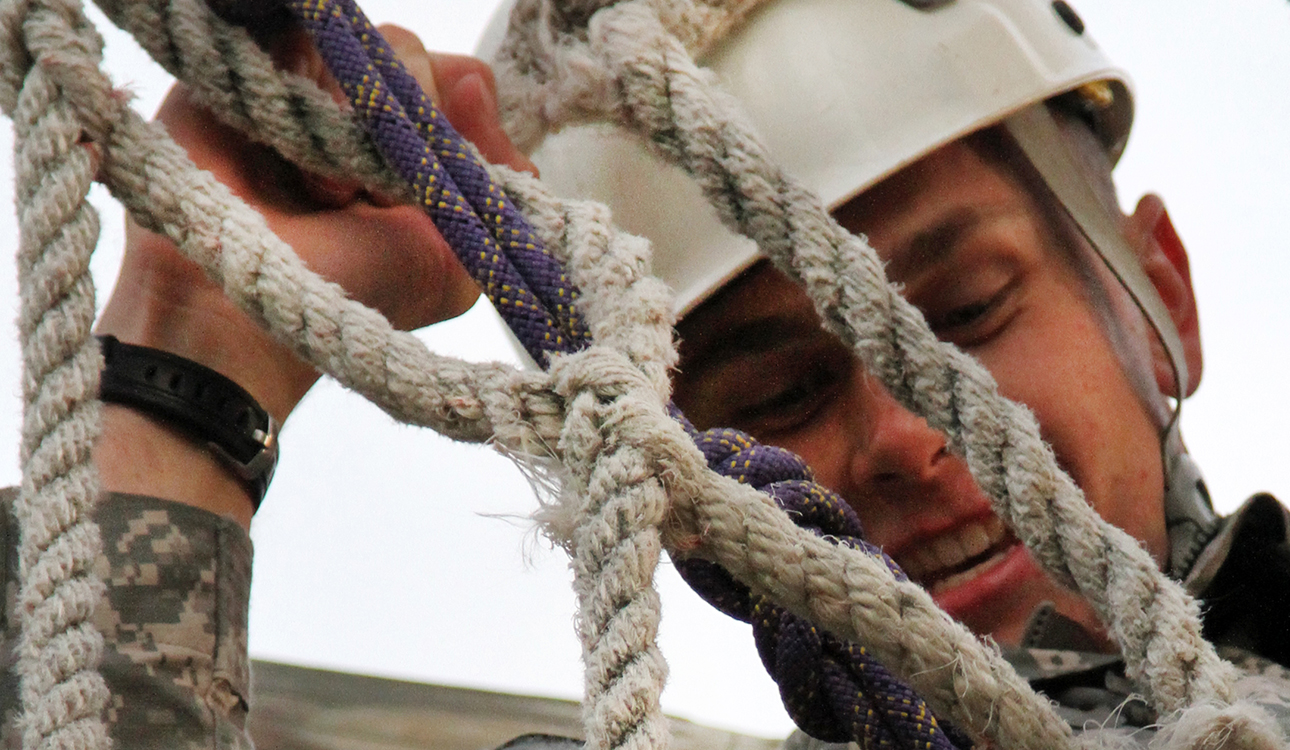
Constance Atton | Lariat Photographer
Staff Writer
After a day of training on a high ropes course just off campus Thursday, Baylor Army ROTC cadets will once again be out of their typical environment this weekend as they attend field training exercises at Fort Wolters in Mineral Wells.
They will work with cadets from Texas Christian University and the University of North Texas, practicing skills they will need to know as leaders in the military.
“They are putting into practice the things that they learn throughout the semester in labs — infantry tactics that allow us to assess their ability to lead small units at the squad level,” said Maj. Santos Arroyo, battalion commander of Baylor Army ROTC. “This is the smallest unit that they’ll get to lead.”
This weekend’s training will start with a daytime and nighttime land navigation test, where cadets will be given a number of points on map.
They will try and use the skills they’ve learned in ROTC to figure out a route to those points.
“It’s very challenging,” Arroyo said. “A lot of people are just afraid of the dark, and it’s in the woods.”
Boerne freshman and Army ROTC cadet Braden Burgess said he is excited for the weekend’s training. This will be his first experience with this event.
“I know there’s still a lot to learn, but definitely over the past couple of months I’ve learned a whole lot,” he said. “It has been a lot of fun and a good experience.”
There are limits in the course to prevent cadets from losing their way and warning devices for people who get scared or lost.
“What we find out is that you always have two or three cadets who are really afraid of something like heights or the dark, and in order for us to instill that Army value of personal courage, we put them in situations that will face them with their fear,” Arroyo said.
On the second day of training, cadets will be divided into squads and mixed with cadets from universities.
“It allows them the opportunity to lead other cadets that they don’t know, because when they go to a unit as a lieutenant, they won’t know anyone,” Arroyo said. “They’re used to leading people they already know.”
Burgess said to him, leadership is one of the most difficult things about training.
“I think the hardest thing is getting people to do what you want,” he said. If you have a mission to go out and do, explaining that to them and communicating that to them so they’re on the same page as you and in the same mindset makes it a challenge, but leadership has always been kind of a natural thing for me. That’s why I chose the Army.”
Cadets will also be performing squad tactics.
On the ground they will use sticks and rocks to illustrate to the rest of squad what the mission is all about.
They will also practice squad ambushes, squad attacks, reconnaissance missions and how to react to an improvised explosive device.

Constance Atton I Lariat Photographer
Cadets will be given feedback on where they can improve after the training is over.
New Braunfels junior and Army ROTC cadet Tara Hutchison has completed four weekends of field training so far in her time at Baylor. There is one for each semester.
“They’ve been good experiences,” she said.
Hutchison said she has seen herself improve each year in the field training exercises.
“Freshman year I didn’t know what I was doing, and you slowly start to learn more and progress,” she said.
Hutchison’s favorite thing about the training is acting as an infantry unit trying to complete a mission.
She said it’s fun and enjoyable.
“You’re with a bunch of random people that you don’t know, so you have to learn what they do best, what their strengths are, their weaknesses and how you can help each other out,” she said. “I think it will be good to be thrown in there where you have to learn about the other people quickly, and learn how you guys can work together as a team.”






